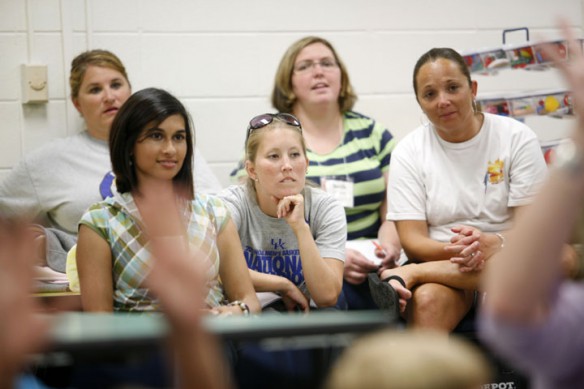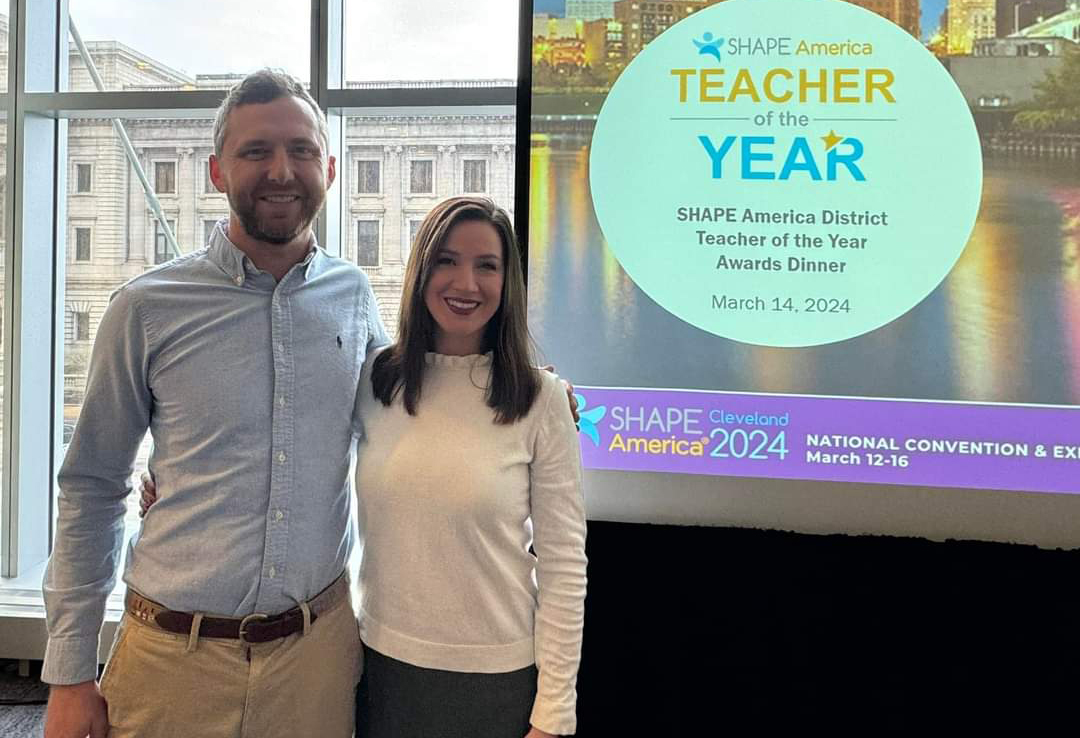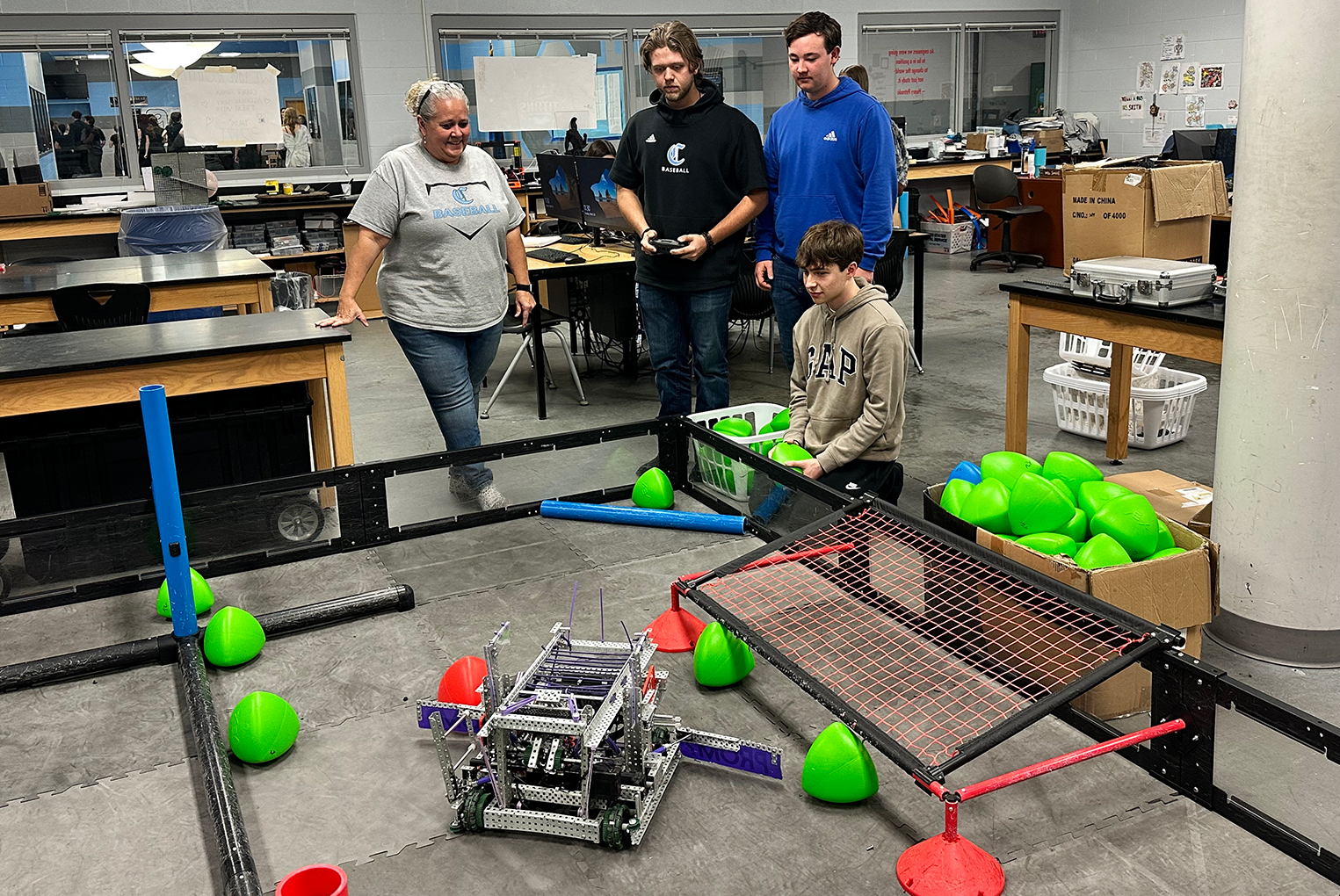
Participants watch a demonstration during the Next Generation Arts Academy at Model Laboratory Elementary School (Madison County). Professional learning in Kentucky is individualized, relevant and effective and tied to improving college and career readiness.
Photo by Amy Wallot, June 19, 2012
By Susan Riddell
susan.riddell@education.ky.gov
When the inaugural Teaching, Empowering, Leading and Learning (TELL) Kentucky Survey results were tallied in 2011, 40 percent of teachers who took the survey said they need differentiated professional development opportunities that meet the needs of the individual teacher.
At that same time, the Kentucky Department of Education (KDE) was selected to partner with the non-profit association called Learning Forward and the Council of Chief State School Officers to transform the way educators grow and learn through the creation of a comprehensive professional learning system. Additionally, KDE was in the process of building its Professional Growth and Effectiveness System (PGES).
“Kentucky teachers will really benefit from these initiatives occurring at the same time,” said Robin Chandler, policy adviser with KDE’s Office of Next-Generation Learners. “They are all pointed to the fact that teachers need support in their growth and through our work with Learning Forward, we’re learning about what that support might look like.”
Chandler added that in supporting each teacher in the state to be effective – KDE must make sure it’s facilitating opportunities for teachers to grow in the areas in which they need growth. When Kentucky partnered with Learning Forward, a Professional Learning Task Force (PLTF) of key stakeholders was formed to make recommendations on policy and practice that would improve Kentucky’s system of professional learning.
Members of the Teachers Advisory Committee (TAC) that meets quarterly with Education Commissioner Terry Holliday were invited to join the PLTF for several meetings to provide input on the final set of recommendations.
Jennifer Fowler, a National Board Certified Teacher who teaches middle school language arts at Paintsville High School (Paintsville Independent), serves on the TAC and also participated in several PLTF meetings. Fowler said PGES, the TELL Survey and the task force recommendations serve as complementary elements to transform professional learning, which leads to more college- and career-ready students.
“Ideal professional learning has to be individual, relevant and effective,” Fowler said. “I see a shift toward this type of professional learning with programs like PD 360 (All Kentucky educators can access PD 360 through the Continuous Instructional Improvement Technology System.). Educators are able to access specific content or classroom management techniques that are relevant to their specific classroom and situation.”
Fowler added that with the new PGES model, she “sees a great potential for a purposeful evaluation system.
“Strengths will be highlighted to allow educators to become mentor teachers,” Fowler said. “Weaknesses will be identified to point educators in the right direction for their individualized professional learning. My hope is that professional learning opportunities, perhaps PD360, will be identified for each standard so that educators will be aware of relevant learning experiences that will positively affect their classroom.”
“In the changes to 704 KAR 3:035 the Kentucky Board of Education is considering now, we’re transitioning from a focus on professional development (PD) to one of professional learning,” Chandler said. “PD is more like a one-time event. Hearing a speaker, taking a class and done. Professional learning is more of a long-term idea that focuses on the outcome – the learning that actually occurs. Teachers might get together in a professional learning community with other teachers, and decide to look at your assessments and your grade level time and decide what you can do to make your assessments more rigorous from this point on.”
“I am excited about the transition from professional development to professional learning,” Fowler said. “It is important for individual educators to be more involved and in control of their professional and personal growth.”
Fowler, like many teachers, has set a personal goal to make yearly improvements as an educator.
“For this to happen, I rely not only on the evaluations from administrators but also on self-evaluation and self-reflection,” she said. “I am able to pinpoint my weaknesses, and our professional development coordinator assists me in finding effective, relevant learning experiences.”
Right now, KRS 156 095 requires teachers to complete four days (24 hours) of professional development each year while administrators must complete 21 hours annually.
Opportunities for an additional 50 hours of data-informed, job-embedded professional learning that focuses on students’ success were recommended by the PLTF but it won’t be required for the upcoming academic year according to Karen Kidwell, director of the Office of Next Generation Learners Division of Program Standards. The current work on the regulation revision focuses on replacing our existing definition and standards with the new Standards for Professional Learning released by Learning Forward in 2011.
“Much research talks about 60-75 hours of professional learning being the number it takes to really impact practice and student learning,” Kidwell said. “I think, given we already require 24 hours, that was a strong number—and, given most district/school calendars, it comes out to about 1 hour 15 minutes per week.” The recommendation isn’t so much about ‘counting’ more hours, but rather ensuring that the opportunity to collaborate and learn within the work day is a priority for every educator and that master schedules include this. Many schools already build this time—and more– into their schedules.
KDE’s goal is to build a system that will measure teacher effectiveness as well as put support in place to foster growth.
“In order for the board’s goal – an effective teacher in every classroom and an effective principal in every building – to be met, a system of support is necessary for growth,” Chandler said.
MORE INFO …
Karen Kidwell, karen.kidwell@education.ky.gov, (502) 564-2106
Robin Chandler, robin.chandler@education.ky.gov, (502) 564-9850
Jennifer Fowler, jennifer.fowler@paintsville.kyschools.us, (606) 789-2656



Leave A Comment